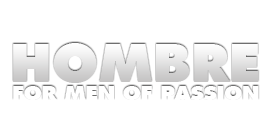Latin Players Take Over Baseball And Speak English With ROSETTA STONE
03 Apr 2014 by Pedro Aristes in Advice, Business, Home, Money, Products

With so many non-U.S. native ballplayers now playing in the major leagues, the need for language training and/or interpreters has never been greater. Rosetta Stone‘s fast-growing Enterprise & Education division currently has contracts with 12 major league clubs, including the Washington Nationals, Los Angeles Dodgers, Seattle Mariners, Milwaukee Brewers, Texas Rangers, Atlanta Braves, Pittsburgh Pirates, Philadelphia Phillies, Baltimore Orioles, Houston Astros, Miami Marlins and Detroit Tigers.
According to Major League Baseball, non-U.S.-born players comprised just over 28 percent of 2013’s opening day rosters, with Latin Americans notching approximately 24 percent. And while many of these players speak English well, many do not.
“There’s a growing need for language training in major league baseball, no doubt about it,” said Steve Swad, President and CEO of Rosetta Stone, the global language-learning leader. “We’re officially doing business with nearly half of all major league teams, and many ballplayers have been using our programs on their own.”
While the need for language training is on the rise in at the major-league level, it is even more pronounced in the minor leagues, where nearly half of all roster spots belong to Latin American ballplayers. Rosetta Stone is actively used by the farm-clubs associated with the company’s major league contract teams, and it is also available to players at many Latin American baseball academies. “Clubs have discovered that in order for the players to function and collaborate effectively on the field and in the clubhouse with their teammates, they must acquire English skills,” said Charles Frydenborg, Rosetta Stone’s Senior Director, Corporate Sales for North America.
Rosetta Stone CEO Swad added that baseball has become like any other rapidly globalizing business. “Language training makes organizations better. We haven’t yet found a way to equate that to higher batting averages, but helping ballplayers communicate with each other and connect with fans and the media makes all the sense in the world.”
It may be worth noting that some baseball words don’t naturally cross home plate in all languages. The word bullpen, for example, is identical in English, Spanish and Japanese, while outside the English language, beanball may call to mind a restaurant menu more readily than a hit batsman. And though no ballplayer has yet to blame his third-base coach’s poor language skills for a missed sign, the next time you see a hitter step out of the batter’s box and look down the line in bewilderment, you may wonder if something important is getting lost in translation.
For more information, visit www.rosettastone.com










